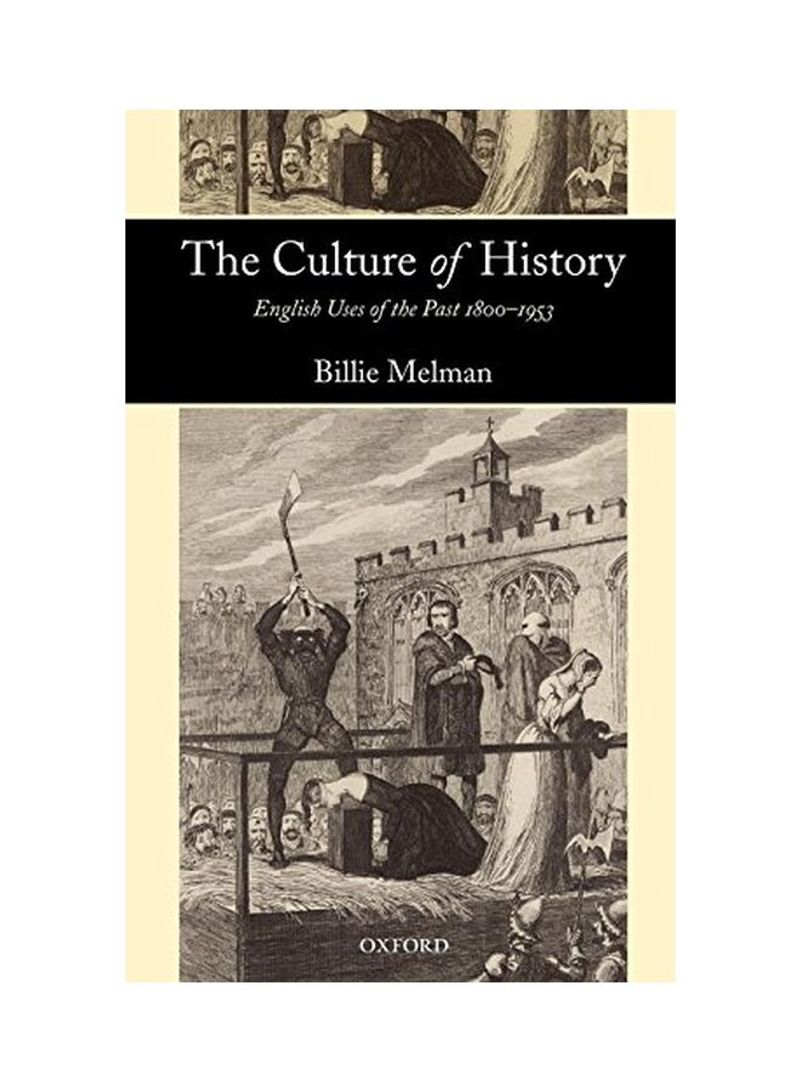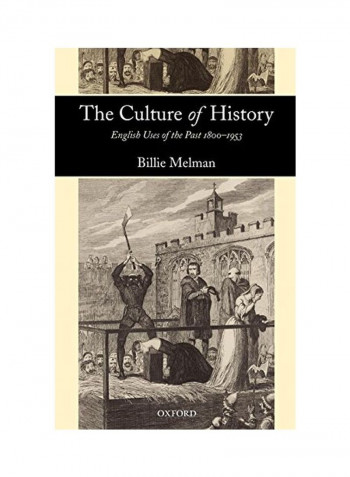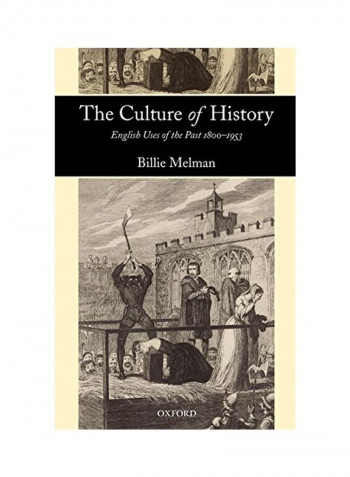The Culture Of History: English Uses Of The Past 1800-1953 Hardcover
Recommend
Sort by
Rating
Date
Specifications
Author 1
Billie Melman
Book Description
In this original and widely researched book, Billie Melman explores the culture of history during the age of modernity. Her book is about the production of English pasts, the multiplicity of their representations and the myriad ways in which the English looked at history (sometimes in the most literal sense of 'looking') and made use of it in a social and material urban world, and in their imagination. Covering the period between the Napoleonic Wars and the Coronation of 1953, Melman recoups the work of antiquarians, historians, novelists and publishers, wax modellers, cartoonists and illustrators, painters, playwrights and actors, reformers and educationalists, film stars and their fans, musicians and composers, opera-fans, and radio listeners. Avoiding a separation between 'high' and 'low' culture, Melman analyses nineteenth-century plebeian culture and twentieth-century mass-culture and their venues - like Madame Tussaud's Chamber of Horrors, panoramas, national monuments like the Tower of London, and films - as well as studying forms of 'minority' art - notably opera. She demonstrates how history was produced and how it circulated from texts, visual images, and sounds, to people and places and back to a variety of texts and images. While paying attention to individuals' making-do with culture, Melman considers constrictions of class, gender, the state, and the market-place on the consumption of history. Focusing on two privileged pasts, the Tudor monarchy and the French Revolution, the latter seen as an English event and as the framework for narrating and comprehending history, Melman shows that during the nineteenth century, the most popular, longest-enduring, and most highly commercialized images of the past represented it not as cosy and secure, but rather as dangerous, disorderly, and violent. The past was also imagined as an urban place, rather than as rural. In Melman's account, City not green Country, is the centre of a popular version of the past whose central Images are the dungeon, the gallows, and the guillotine.
ISBN-13
9780199296880
Language
English
Publisher
Oxford University Press
Publication Date
14 Sep 2006
Number of Pages
378
About the Author
Billie Melman was educated in Tel Aviv and London. She is Professor of Modern History at Tel Aviv University. She has written extensively on British popular culture, British orientalism and the culture of colonialism, on history and memory, and on gender.
Editorial Review
tremendous breadth and analytical power ... a stunning contribution to historical scholarship on how the English past was understood.' * Sonya O. Rose, Victorian Studies * Her text and the meticulously constructed bibliography are replete with generous references to the writings of John Burrow, Stefan Collini, Stephen Bann and other historians whose interpretations she wishes to extend rather than replace. This is a book that should be read in conjunction with their work. * History * ...a powerful, imaginative, and exciting interdisciplinary book. * Rohan McWilliam, American Historical Review * ... astonishingly wide-ranging ... an outstanding contribution to our understanding of modern historical culture. * Rosemary Mitchell, Journal of Victorian Culture * The Culture of History is an engaging, original, and provocative study of popular history that combines a broad historical sweep with persuasive detail drawn from an unusual complex of sourcesIt is exciting, well written , and a major revisionist work. * Reba Soffer, California State University * A kaleidoscopic inquiry into the popular imagination of history that succeeds triumphantly in presenting the strange and partially-obscured mentalities of non-elite people in the past. Dealing principally with the ways in which the French Revolution and the Tudor monarchy have been presented and consumed in modern English culture, Melman's unusually broad survey of periods and sources brings out the populist, gothic, and grotesque elements of "historical consciousness" in a wholly original way, and helps to disturb some of our more comforting myths about English people's consciousness of their own history. Ambitious, sophisticated, and swashbuckling. * Peter Mandler, University of Cambridge * ...she has blazed a trail that others will undoubtedly follow * Simon Morgan, Institute of Historical Research * brilliant new book * Leslie Howsam, Canadian Journal of History * The culture of history...is a lively and richly illustrated guide... * Michael Ledger-Lomas Historical Journal * [A] well researched study. * Journal of the Historical Association * It is impossible to do justice to the many insightful arguments offered in this deeply researched book...an outstanding contribution to the study of modern historical culture. the challenges it poses to existing orthodoxies, and the avenues and reflections it opens, make this work relevent not just to scholars of Victorian and early twentieth-century England but to anyone studying historical consciousness. * Astrid Swenson, Journal of Contemporary History, Vol 44 No 22 *



